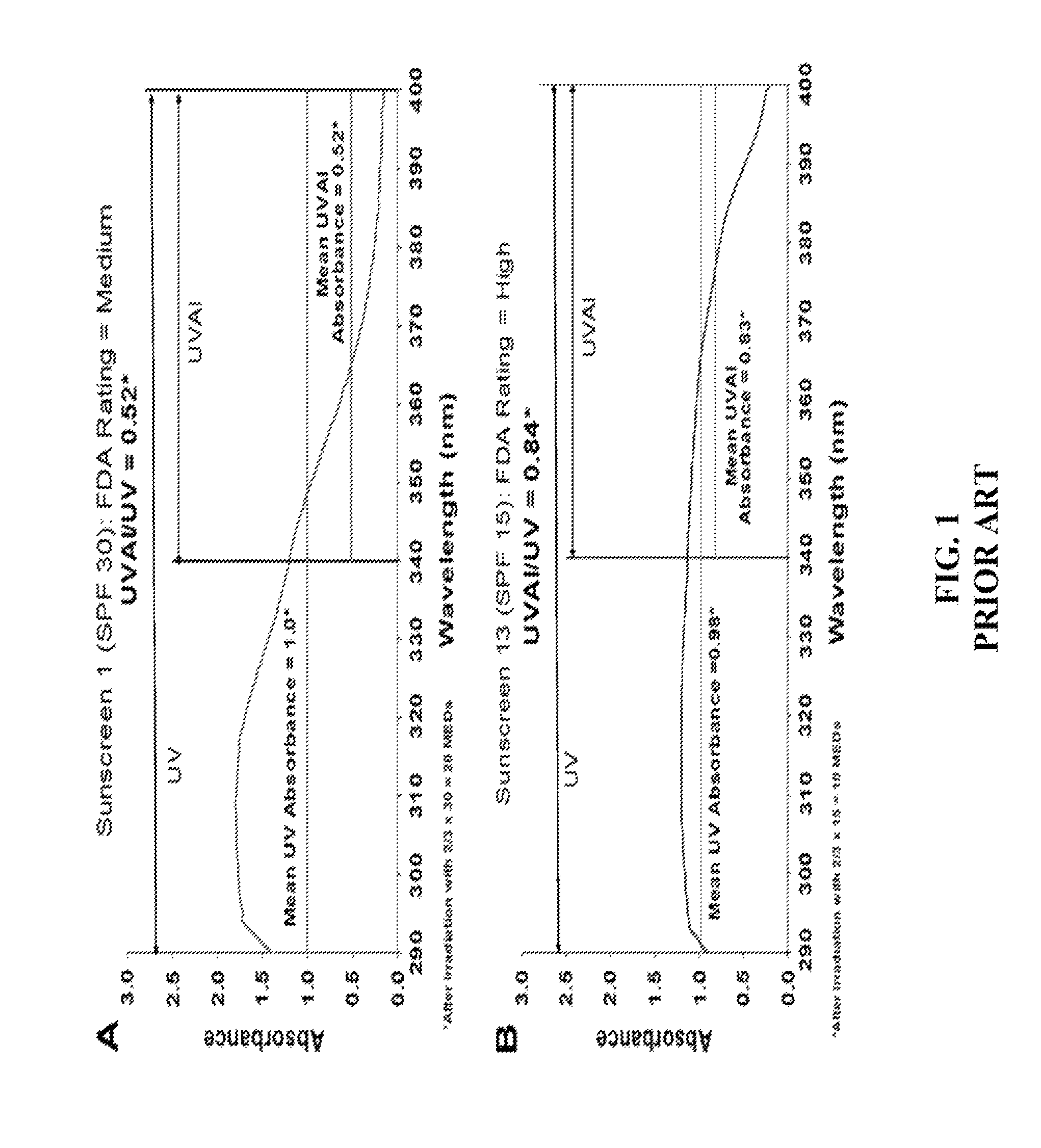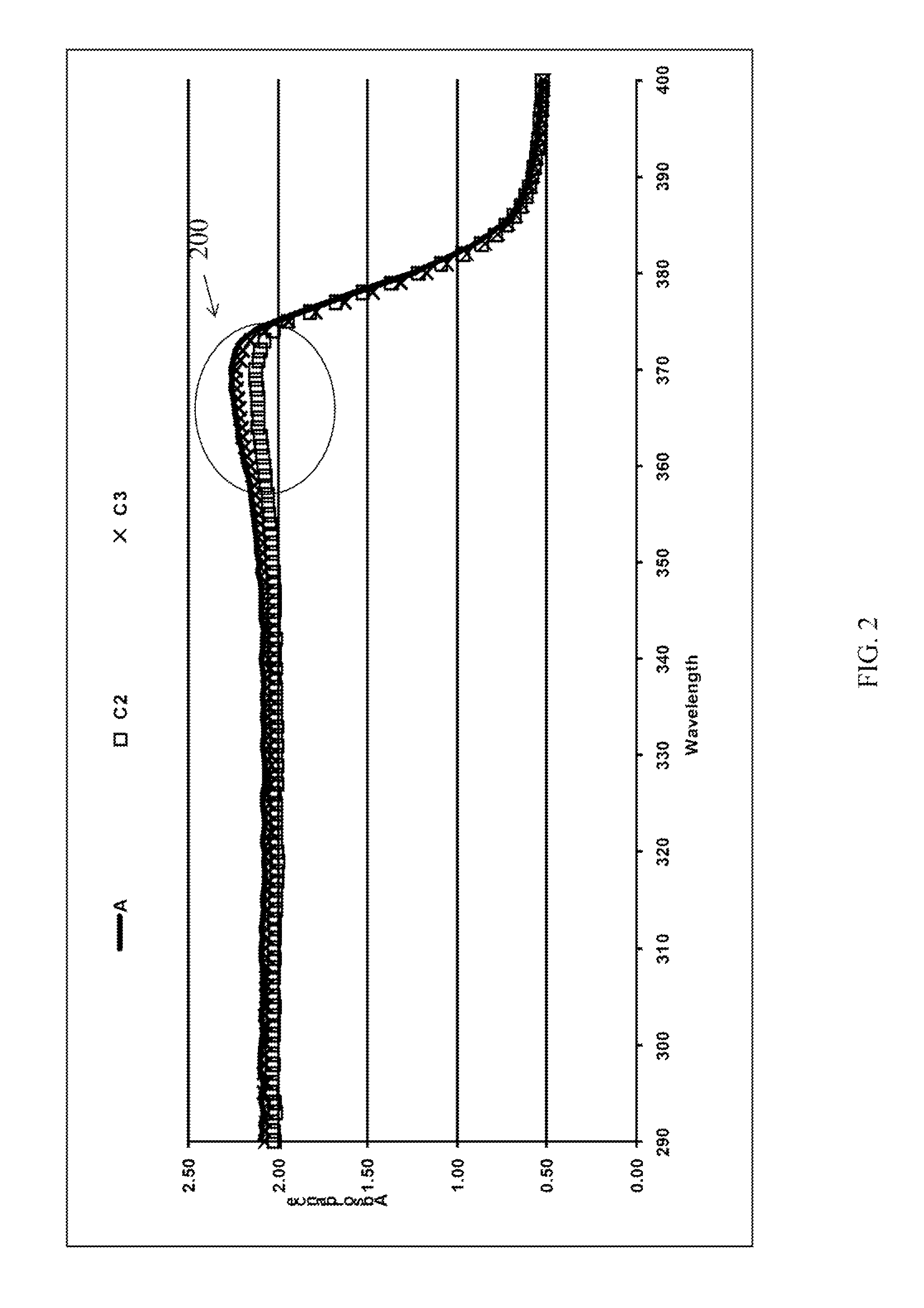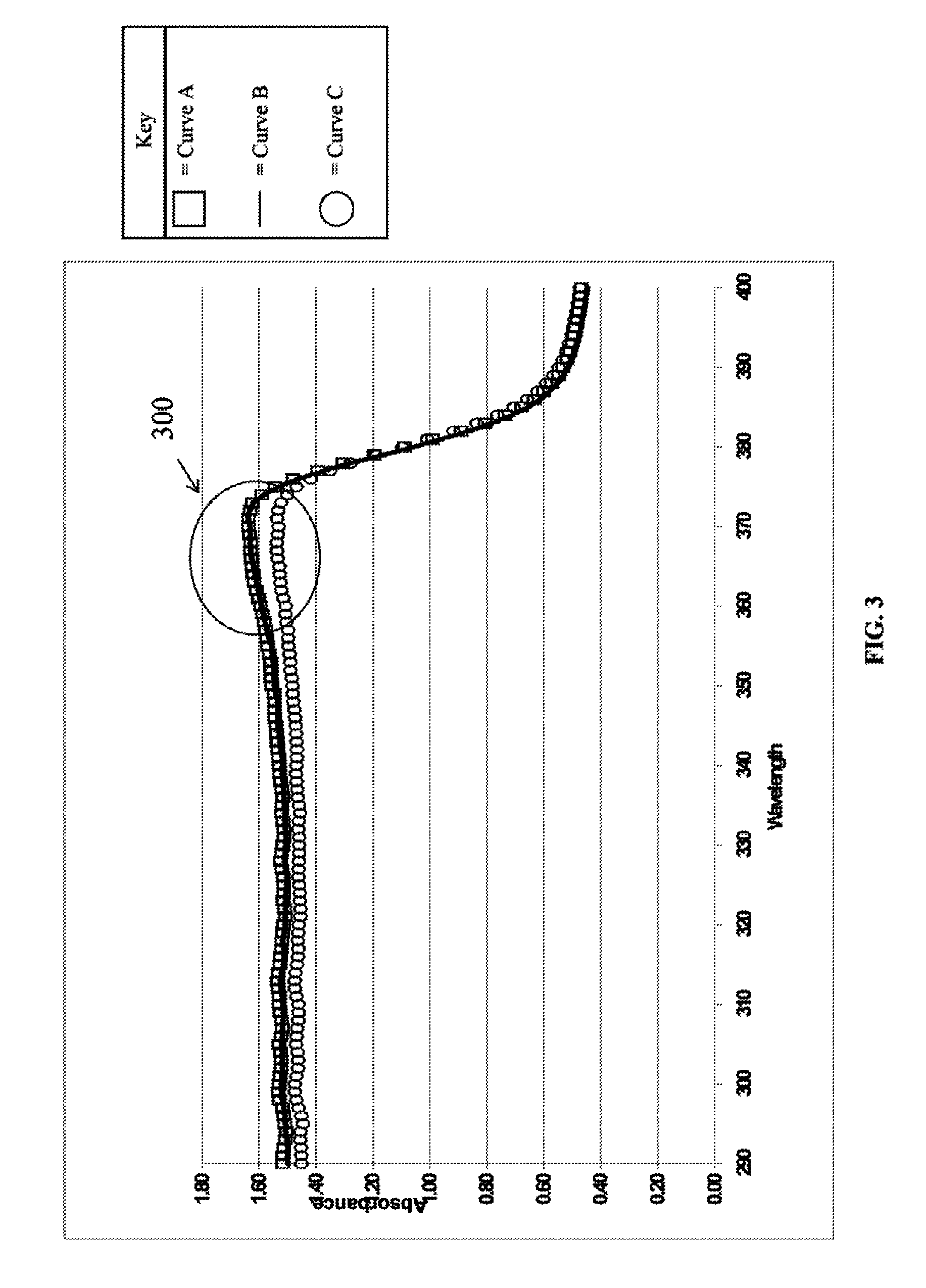Broad spectrum UVA stable, non-toxic, zinc oxide based complex
a zinc oxide and complex technology, applied in the field of unique micronized zinc oxide based complexes, can solve the problems of reducing the aesthetic appeal of insulating products, affecting the effect of insulating products,
- Summary
- Abstract
- Description
- Claims
- Application Information
AI Technical Summary
Benefits of technology
Problems solved by technology
Method used
Image
Examples
example i
[0143]1. In a container add distilled water.
[0144]2. Add / mix NH4OH into the distilled water to make a buffered water solution until the pH of the mixture is between 10 and 11.
[0145]3. Add / mix micronized zinc oxide particles to the mixture monitoring the pH to ensure it is maintained between 10 and 11.
[0146]Allow mixture to react.
[0147]If pH falls below 10, add mixture of distilled water and NH4OH to raise pH between 10 and 11.
[0148]4. Let mixture sit for 24 hours at a temperature of between 4 and 20 degrees centigrade.
[0149]5. Heat emulsifier to between 60 and 100 degrees centigrade for up to 30 minutes.
[0150]6. Emulsifier may be one of several including but not limited to; Emuglade® PL 68 / 50, supplied by Cognis Corporation, which is comprised of cetearyl alcohol and cetearyl glucoside or cetearyl glucoside such as TEGO® Care CG 90 supplied by Evonik Industries AG and Phospolipon® 90G supplied by American Lechithin Company in Oxford, Conn.
[0151]Add emulsifier to mixture at between 0...
example ii
[0152]1. In a container add distilled water.
[0153]2. Add / mix NH4OH into the distilled water until the pH of the mixture is between 10 and 11.
[0154]3. Add / mix micronized zinc oxide to the mixture monitoring the pH to ensure the pH is maintained between 10 and 11.
[0155]Allow mixture to react.
[0156]If pH falls below 10, add mixture of distilled water and NH4OH to raise pH to between 10 and 11.
[0157]4. Let mixture sit for 24 hours at a temperature of between 4 and 20 degrees centigrade.
[0158]5. Add 1% by weight of glycerine to the zinc oxide complex.
[0159]6. Heat emulsifier to between 60 and 100 degrees centigrade for up to 30 minutes.
[0160]Emulsifier used is TEGO® Care CG 90 cetearyl glucoside.
[0161]7. Add 0.1% to 5% by weight emulsifier to mixture.
example iii
[0162]1. In a container add distilled water.
[0163]2. Add / mix NH4OH into the distilled water until the pH of the mixture is within range of between 10 and 11.
[0164]3. Add / mix micronized zinc oxide to the mixture monitoring the pH to ensure the pH is maintained between 10 and 11.
[0165]Allow mixture to react.
[0166]If pH falls below 10, add mixture of distilled water and NH4OH to raise pH to between 10 and 11.
[0167]4. Let mixture sit for 24 hours at a temperature of between 4 and 20 degrees centigrade.
[0168]5. Heat emulsifier to between 60 and 100 degrees centigrade for up to 30 minutes.
[0169]Emulsifier may either be Emuglade® PL 68 / 50, comprised of cetearyl alcohol and cetearyl glucoside or cetearyl glucoside such as TEGO® Care CG 90.
[0170]6. Add emulsifier to mixture at between 0.1% and 5% by weight.
[0171]Add 0.5% to 3% by weight of sodium stearoyl glutamate such as Eumulgin® SG supplied by Cognis Corporation and 1% by weight glycerine.
PUM
| Property | Measurement | Unit |
|---|---|---|
| wavelengths | aaaaa | aaaaa |
| wavelengths | aaaaa | aaaaa |
| temperature | aaaaa | aaaaa |
Abstract
Description
Claims
Application Information
 Login to View More
Login to View More - R&D
- Intellectual Property
- Life Sciences
- Materials
- Tech Scout
- Unparalleled Data Quality
- Higher Quality Content
- 60% Fewer Hallucinations
Browse by: Latest US Patents, China's latest patents, Technical Efficacy Thesaurus, Application Domain, Technology Topic, Popular Technical Reports.
© 2025 PatSnap. All rights reserved.Legal|Privacy policy|Modern Slavery Act Transparency Statement|Sitemap|About US| Contact US: help@patsnap.com



